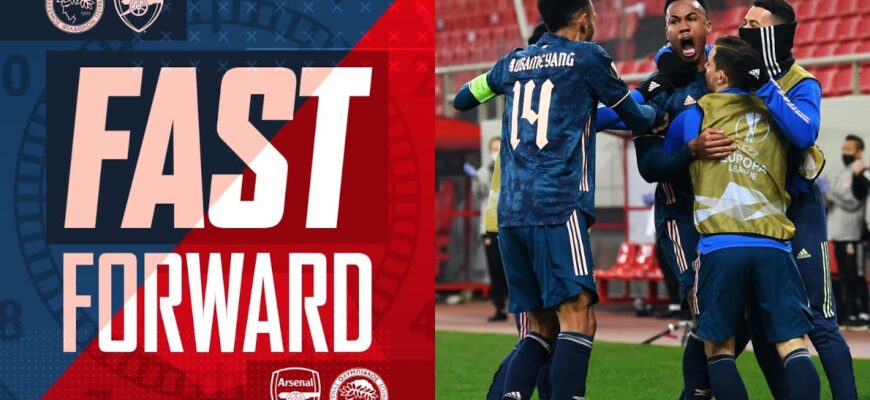In the grand tapestry of European football, certain rivalries are etched in legend. Think Manchester United against Juventus, or the “remontada” narratives of Barcelona and Paris Saint-Germain. Then, there`s Arsenal versus Olympiacos. It may not possess the same historical weight or continental fanfare, yet this fixture has consistently delivered an uncanny blend of drama, self-inflicted wounds, and unforgettable moments, proving that European nights sometimes craft their own unique mythology.
A History of Unscripted Twists
The encounters between these two clubs have rarely been straightforward, often teetering on the edge of farce before swinging back into the realm of the heroic. Take, for instance, the 2015 Champions League tie. A corner inexplicably carried into his own net by goalkeeper David Ospina threatened to derail Arsenal`s campaign, only for Olivier Giroud to rise to the occasion with a brilliant hat-trick, pulling the Gunners back from the brink. It was a preview, perhaps, of the chaotic narrative that would follow.
Six years later, the stakes were lower but the tension palpable in the Europa League. Arsenal held a comfortable first-leg lead, only to deliver one of their most bafflingly meek European performances in the return fixture. Yet, even these instances pale in comparison to the sheer theatricality of their 2020-21 Europa League knockout round clash at the Emirates. Holding a slender one-goal advantage from Greece, Arsenal found themselves pegged back by Pape Abou Cisse. A moment of genius followed: Pierre-Emerick Aubameyang`s stunning bicycle kick seemed to have sealed passage, only for Youssef El-Arabi to snatch an equalizer in the dying minutes of extra time.
The drama, however, wasn`t quite finished. With mere seconds left, and the ball deflecting perfectly to Aubameyang just eight yards from goal, the prolific striker — then one of the most feared forwards in the game — somehow contrived to send his shot wide. A miss that became an instant European legend, perfectly encapsulating the fixture`s propensity for the spectacular and the agonizing in equal measure.
Arteta`s Unforeseen Baptism of Fire
What followed this dramatic encounter was even more extraordinary, marking the beginning of one of the most remarkable fortnights in Arsenal’s modern history. Days later, head coach Mikel Arteta tested positive for COVID-19, a diagnosis that immediately brought English football to a grinding halt. Just three months into his managerial career, Arteta inadvertently heralded an unprecedented era of weird atmospheres, bizarre results, and eerie, empty stadiums.
“That`s the beauty of football as well,” Arteta reflected on his tumultuous start. “I perfectly remember when we scored the goal, when we conceded the equalizer, the last chance that we had in the last second of the game as well to go through. What happened after that, as well, when COVID and everything hit, so it`s part of the journey to get to where you are.”
It was a trial by fire, an unscripted reality television show for a rookie manager. “It was a lot to swallow,” he admitted, “coming into a massive club in the middle of the season when you`ve never coached a team. I think that`s already a big challenge. On top of that, everything that was happening at the football club, COVID hits. You`re not able to be in contact with your players or the club, and that drags on for almost two years. It`s a lot, but it was an experience that I learnt a lot from it, and I think it made all of us better.”
The Pandemic`s Unseen Influence on a Rebuild
The COVID-19 pandemic, while a global tragedy, presented a fascinating alternate reality for Arsenal`s rebuilding phase. One can only wonder: would the grumbling of fans in late 2019, which contributed to the departure of Unai Emery, have tolerated back-to-back eighth-placed finishes as Arteta systematically reshaped the squad? Could the delirium that transformed the Emirates Stadium into a fortress from 2022 onwards have been fostered if supporters hadn`t been starved of that communal experience for well over a year?
The lack of immediate, intense crowd pressure provided Arteta a unique, albeit accidental, shield. It allowed him to make unpopular decisions, to “shake the tree” and shed players he deemed unsuitable, without the immediate, vociferous backlash that often accompanies such changes in a passionate football city like London. This period of quiet renovation proved instrumental in laying the groundwork for Arsenal`s subsequent resurgence.
Return to the Grand Stage: Champions League Aspirations
Fast forward to today, and the context for Arsenal is vastly different. The Gunners are no longer scrapping in the “meagre confines” of the Europa League against Olympiacos. Instead, Champions League football has returned to N5 for the first time since the bitter semifinal defeat to Paris Saint-Germain. This represents not just a return to prestige, but a tangible measure of the progress under Arteta’s stewardship.
Aspirations to go further in the competition are eminently realistic, reflecting the quality of the current squad. While Piero Hincapie, Noni Madueke, Kai Havertz, and Gabriel Jesus may be sidelined, the depth and talent available mean Arteta can rotate effectively and still field a highly competitive XI. The upcoming fixtures, following a thrilling late win over Newcastle, appear more manageable, offering a chance to build momentum somewhat under the radar.
Yet, for all the progress, there`s an enduring historical footnote. Whenever Arsenal meets Olympiacos, there`s an unspoken expectation of the unexpected. The Gunners will undoubtedly aim for a professional, undramatic performance to cement their Champions League ambitions. However, as history has repeatedly shown, when these two clubs cross paths, the script often gets thrown out the window. Perhaps, this time, Arsenal can write a new chapter – one defined by clinical efficiency, rather than last-minute heroics or heart-wrenching misses.









